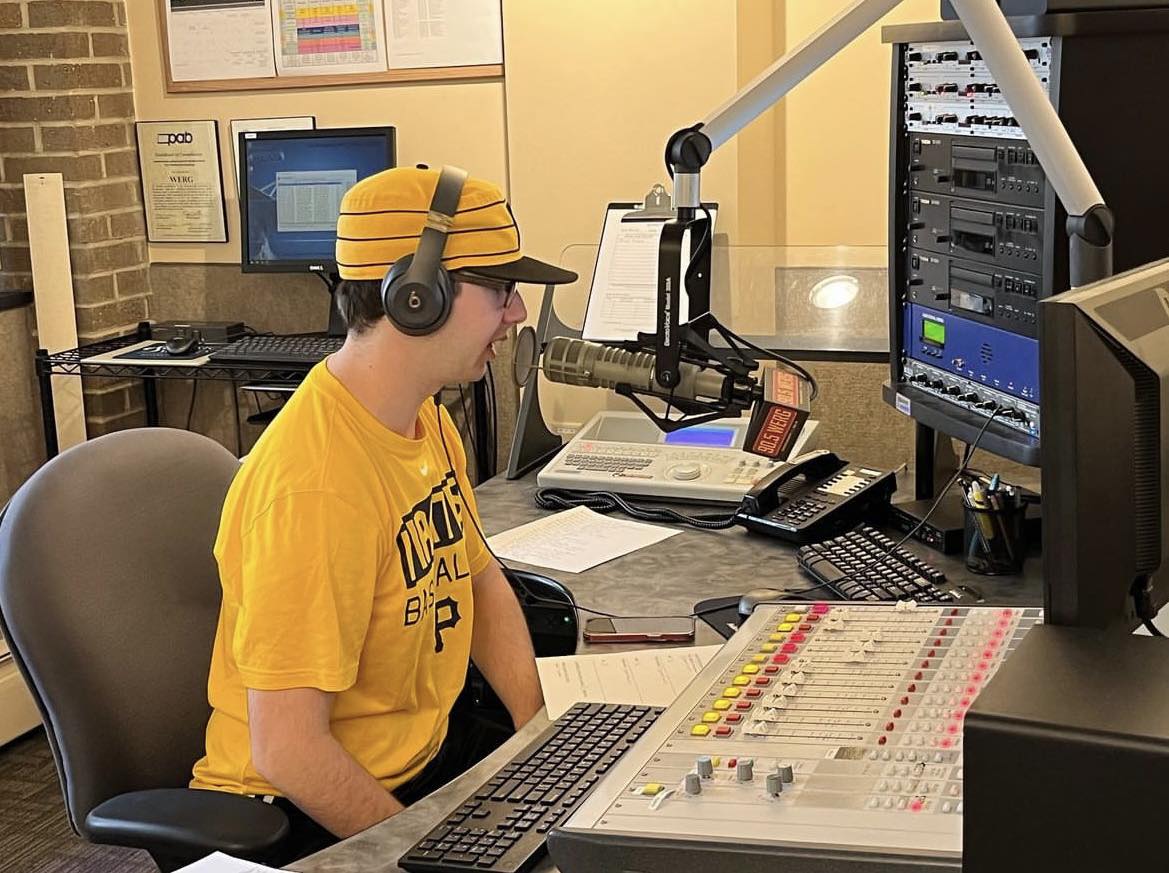Many students at Gannon University have to take classes they’re not exactly looking forward to, but more often than not those classes turn out to be OK.
Organic chemistry, according to a couple of Gannon students, is one of those classes. It may be difficult, but it doesn’t have to be the experiment-gone-wrong nightmare students dream it up to be.
Junior chemistry majors Hannah Feezle and Beth Facchine said organic chemistry, put simply, is a carbon-based study of the way molecules interact to form new compounds.
Facchine said, in the class, students learn how to synthesize compounds and how these compounds react with other chemicals and conditions.
Feezle added that students are supposed to learn synthesis, reactions, stereochemistry – the study of the special arrangement of atoms within molecules – and do simple chemical tests on the carbon-based molecules.
Both Feezle and Facchine have taken Organic Chemistry 1, 2 and 3 at Gannon. They said that while the classes can be difficult, students definitely learn a lot.
“Organic chemistry is something most students have not run across before,” Facchine said. “Learning how to name, synthesize and react compounds requires practice.”
Feezle had a similar reaction to organic chemistry. “The classes get a lot easier as you go along. For me, Organic 1 was the hardest course to take,” she said. “It’s just a lot of new material that’s really unfamiliar compared to the general chemistry classes that come before it.”
Facchine described the classes as requiring effort, but not necessarily difficult if students take the time to do all the work. She said they require a lot of memorization, but that the tests aren’t hard if students know the material.
“The quizzes every class period are sometimes hard to keep up with,” she said, “but these quizzes ensure that you are going over the material instead of saving it all for the night before thetest.”
Both students said the classes fall into the category of that which students dread, but shouldn’t.
Facchine said many students have had bad experiences with general chemistry (gen chem), and so subsequently have issues with taking organic chemistry (o-chem), but she said that o-chem is completely different.
“I have found that a lot of people who hated gen chem like and do well in o-chem,” she said. “I will reiterate – the class does require work, but it is not difficult if you do the work.”
Feezle approached the class a little differently.
“I still dread it,” she said, “but I feel like others who are a bit more organized and studious shouldn’t. I don’t have the best study skills, but if you do, then you’ll be fine and shouldn’t dread it.”
Francis Pelczar, Ph.D. – who teaches organic chemistry classes at Gannon – inclined not to participate in this article, but Facchine said he keeps the students prepared for class and provides them with the information they need to do well.
She said he gives the class packets to work on and then goes over them at the beginning of each class. She said this enables the students to pay attention to what he’s saying without having to take a ton of notes.
“He is always willing to talk to students if they are having problems,” she said.
Feezle said how you interpret the class has a lot to do with the amount of effort you put into it. “Depending on the professor and whether or not the student takes initiative to try their best, the professors will make it less challenging,” she said. “However, if the student doesn’t, I’ve seen a professor basically deny a student help and say, ‘Go get a tutor or start studying.’”
Overall, though, both students said it’s not a class to get worked up over in advance.
Facchine advised students to stay on top of the quizzes. She said they may seem small at first, but the points add up quickly. She also said to ask for help if it’s needed.
“If you are struggling, talk to Dr. Pelczar and find a tutor as soon as possible,” she said. “If there are no tutors available at the tutoring center, Dr. Pelczar can usually find someone to help.”
Feezle also said students just need to keep up with their studying. “Prepare by developing good studying habits early on,” she said. “If I can pass, so can you.”







